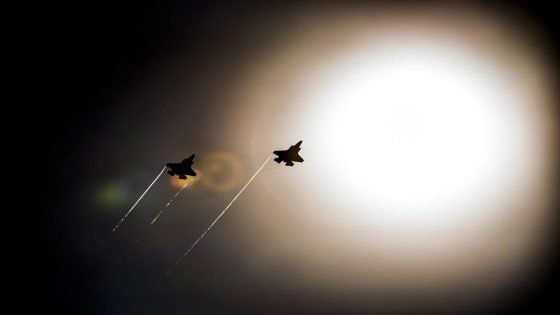Two of the worldâs largest defense contractors said they signed a long-term agreement that will accelerate procurement and delivery of geospatial information considered integral to F-35 pilot training.
Maxar Intelligence and Lockheed Martin announced their growing partnership May 6, saying it will improve the F-35 Full Mission Simulator. The FMS, as itâs known, puts people inside a copycat cockpit with displays and other devices that replicate software, sensors and weapons used on the actual aircraft.
The simulator is a major step in training and is useful for mission rehearsal. More than 1,300 people have been schooled using the FMS, according to Lockheed.
At its core are lifelike visuals and environments that Maxar makes possible. The new agreement standardizes pricing, licensing and other requirements for its products, including Dynamic and Precision3D, which generate high-resolution images and three-dimensional models of the Earth. The joint announcement did not mention a dollar figure.
RELATED
âMaxarâs geospatial products, particularly Precision3D, are critical to the success of this system,â Susanne Hake, general manager for U.S. government at Maxar, said in a statement. âThey enable the highly accurate, precise simulated real-world environments that are brought to life in the FMS, creating an immersive experience that helps improve pilot safety and enhance mission success.â
The Department of Defense is increasingly interested in computerized worlds: The Army has mulled the metaverse as a recruiting tool, thinking it may appeal to younger generations, and Navy leaders have advocated for improved virtual testing techniques for information warfare and other sensitive disciplines.
Doing things digitally can save real-world materiel from wear and tear while also boosting the amount of hours one can practice. Hake described the FMS as an âindustry gold standard for immersive training and mission readiness support.â
Lockheed is the worldâs largest defense contractor when ranked by defense-related revenue, according to Defense News Top 100 analysis. The company earned $63 billion in 2022.
Maxar stood at No. 77, reaping $952 million. The company was tapped earlier this year for additional work on One World Terrain, considered a critical component of the Armyâs Synthetic Training Environment.
Colin Demarest is a reporter at C4ISRNET, where he covers military networks, cyber and IT. Colin previously covered the Department of Energy and its National Nuclear Security Administration â namely Cold War cleanup and nuclear weapons development â for a daily newspaper in South Carolina. Colin is also an award-winning photographer.
Source Agencies



